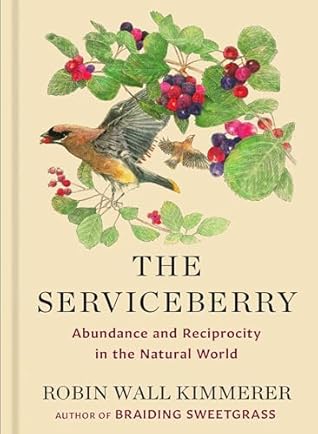More on this book
Community
Kindle Notes & Highlights
Read between
October 7 - October 9, 2025
Recognizing “enoughness” is a radical act in an economy that is always urging us to consume more.
These processes are the models for principles of a circular economy, in which there is no such thing as waste, only starting materials. Abundance is fueled by constantly circulating materials, not wasting them.
When systems of governance and market economies of debt are disrupted, networks of mutual aid arise. Heroic tales are told of giving away truckloads of bread pulled from bakery shelves. Just hours ago, that bread was private property that would be sold at a profit and defended from thieves, but in the moment of trouble, it becomes a gift.
The challenge is to cultivate our inherent capacity for gift economies without the catalyst of catastrophe. We have to believe in our neighbors, that our shared interests supersede the impulses of selfishness. There is a tragedy in believing the proffered narrative of our system, which turns us against each other in a zero-sum game.
We grumble about paying taxes, but in essence this legal obligation is an investment in collective care, in the commons. Other nations provide more than books and green spaces for the common good. These social democracies provide free universal health care, education for all, elder care, family support, and investment in sustainability.
We humans must consume, since we are animals to whom the gift of photosynthesis was not given. But our patterns of gross overconsumption have brought us to the brink of disaster. What would it be like to consume with the full awareness that we are the recipients of earthly gifts, which we have not earned? To consume with humility? We are called to harvest honorably, with restraint, respect, reverence, and reciprocity.
Let’s remember that the “System” is led by individuals, by a relatively small number of people, who have names, with more money than God and certainly less compassion. They sit in boardrooms deciding to exploit fossil fuels for short-term gain while the world burns. They know the science, they know the consequences, but they proceed with ecocidal business as usual and do it anyway.
All flourishing is mutual.
In order for capitalist market economies to function, there must be scarcity, and the system is designed to create scarcity where it does not actually exist.
In order for money to be made, there must be commodities to be bought and sold. The scarcer those commodities, the higher their cost and thus the greater the revenue. So, I guess I do understand this: market economics demands that abundant, freely available, earthly gifts be converted to commodities and made scarce by privatization and high prices.


